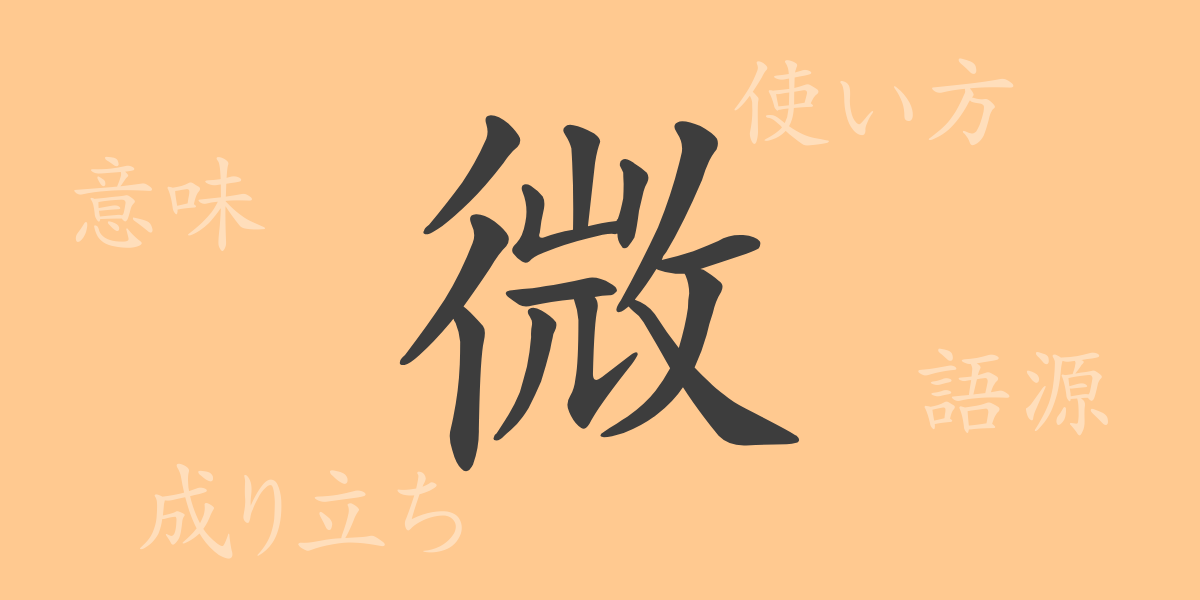In Japanese expressions, kanji (漢字) adds depth to meanings and enriches the nuances of words. The commonly used kanji “微” (bi) gives a unique sense to Japanese language with its delicate implications. In this article, we will explore the world of “微” (bi), delving into its origins, meanings, usage, and even idioms and proverbs, uncovering its charm in depth.
Origins of 微 (bi)
The kanji “微” (bi) is believed to have derived from ancient Chinese pictographs. Originally, it was used to represent “subtle differences” or “tiny particles.” The shape symbolizes “a person standing on a mountain looking into the distance.” Over time, it has taken on more abstract meanings and is now used to express concepts like “微細” (bisai, minute) and “微妙” (bimyo, subtle), which denote fine, almost invisible details.
Meanings and Usage of 微 (bi)
The kanji “微” (bi) carries meanings such as “small,” “minute,” “slight,” and “barely perceptible.” In Japanese, it is used in various contexts to leverage these meanings. For instance, “微笑む” (hohoemu, to smile faintly) indicates a slight smile, “微熱” (binetsu, slight fever) refers to a low-grade fever, and “微量” (biryō, minute amount) signifies a very small quantity. Moreover, the expression “微妙” (bimyo, subtle) is often used to describe situations or emotions that are not clear-cut or are perceived as difficult.
Reading, Stroke Count, and Radical of 微 (bi)
The kanji “微” (bi) plays a significant role in written Japanese with its readings and form.
- Readings: In on’yomi (音読み), it is read as “ビ” (bi), and in kun’yomi (訓読み), it is read as “かす.か” (kasu.ka).
- Stroke count: It has a total of 13 strokes.
- Radical: The radical is “微” (bi) itself, functioning as an independent radical.
Idioms, Proverbs, and Expressions Using 微 (bi)
There are many idioms, proverbs, and expressions in Japanese that include “微” (bi). For example, “微細” (bisai, very minute) means extremely fine, “微温” (bion, slightly warm) denotes a gentle warmth, and “微睡む” (magurumu, to doze off) means to doze. Additionally, the proverb “微に入り細を穿つ” (bi ni iri sai o ugatsu) describes paying attention to every detail when doing something. These expressions showcase the subtlety and richness of the Japanese language.
Summary of 微 (bi)
The kanji “微” (bi) adds depth to the Japanese language with its delicate meanings. From its origins and meanings to its usage and idioms, this kanji enriches the world of Japanese words. By encountering “微” (bi) in various everyday expressions, we can gain a deeper understanding of the subtle nuances of the Japanese language.

























